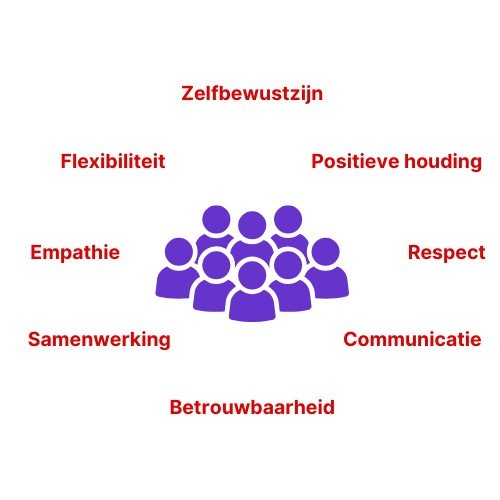General
PERSONAL
Business
For managers
Are the Right People in the Right Roles?
A team only performs at its best when people operate from their natural strengths. Yet in many organizations, critical roles—like leaders, decision-makers, or strategists—are often assigned based on experience, hierarchy, or availability rather than true talent. That comes with risks.
Why This Matters
Team dynamics should never be left to chance. When people are in the wrong role, they become frustrated, lose motivation, or start looking elsewhere. Poorly functioning management often leads to bad decisions, loss of trust, and stalled growth.
That’s why it’s important to look beyond results—to the underlying team structure and the natural roles people instinctively take on.
How We Help
Using our TalentScan and TeamScan, we provide insight into:
* Natural behavior, resilience, and maturity of individual team members
* Who in the team are the drivers, diplomats, organizers—or potential disruptors
* Which roles are filled from strength—and which are not
* Where potential is being underused—or where risks are emerging
These insights help you to:
* Align roles and responsibilities more effectively
* Offer team members a future through development or career planning
Strengthen the team as a whole
* Step into your leadership role with greater impact
A common example:
A salesperson rarely visits clients. You keep pushing, but nothing changes. The real issue? They’re not a natural relationship builder. They’re simply in the wrong role.
Or take a manager with little natural authority, promoted due to years of experience. The result? The team lacks direction and becomes unclear about expectations.
What’s the Risk of Doing Nothing?
When roles are misaligned:
* Poor decisions are made
* Motivation drops and people leave
* Frustration builds and communication breaks down
* Talent slips away—even though everything may appear under control
Time for Clarity
Wondering if your team is in balance?
Our TalentScan and TeamScan quickly reveal the strengths and weak spots in your team’s structure. With that clarity, you can make targeted adjustments—leading to more engagement, better performance, and future-proof leadership.
Schedule aQuickScan or introductory meeting. Get in touch for more information.

